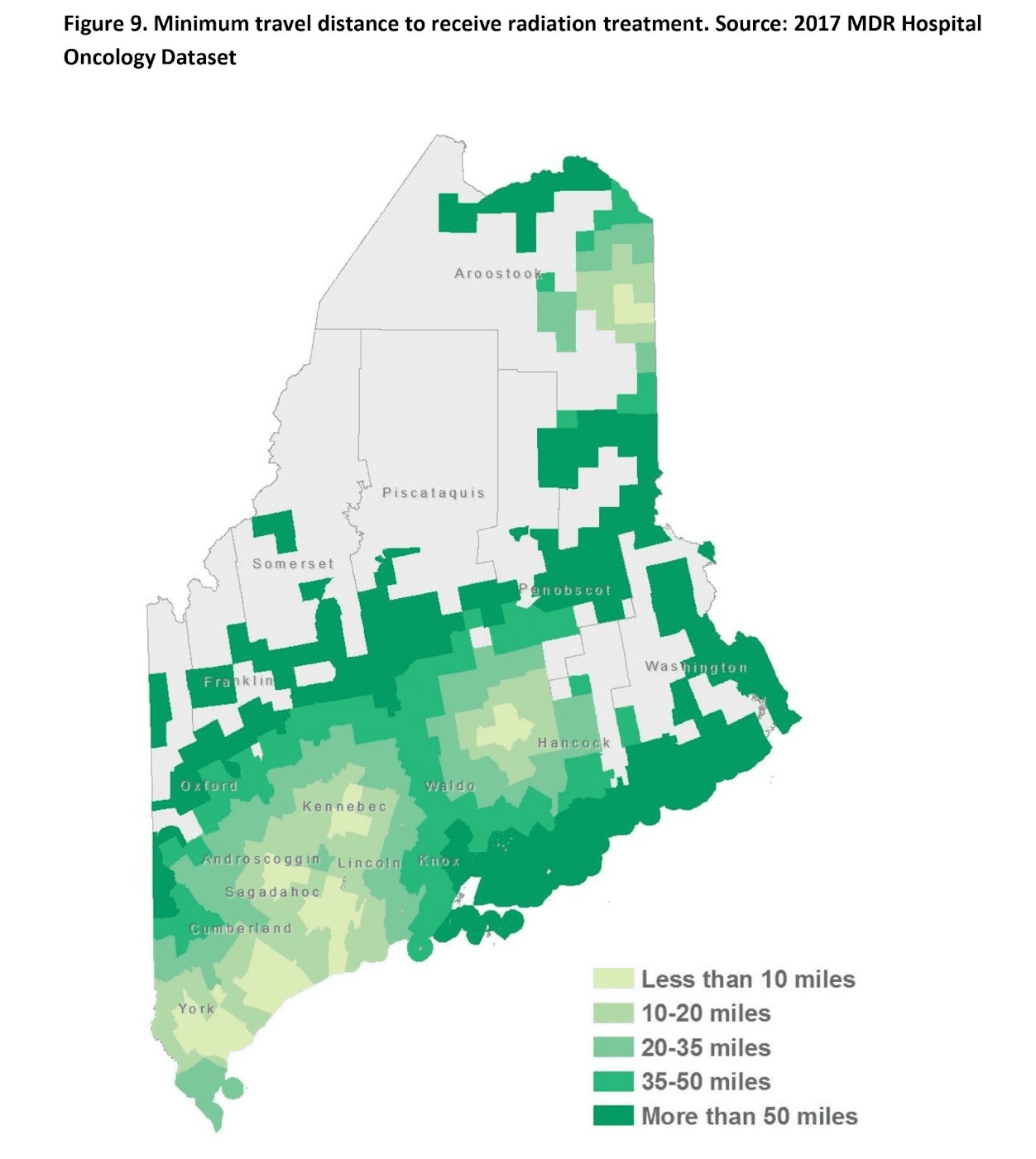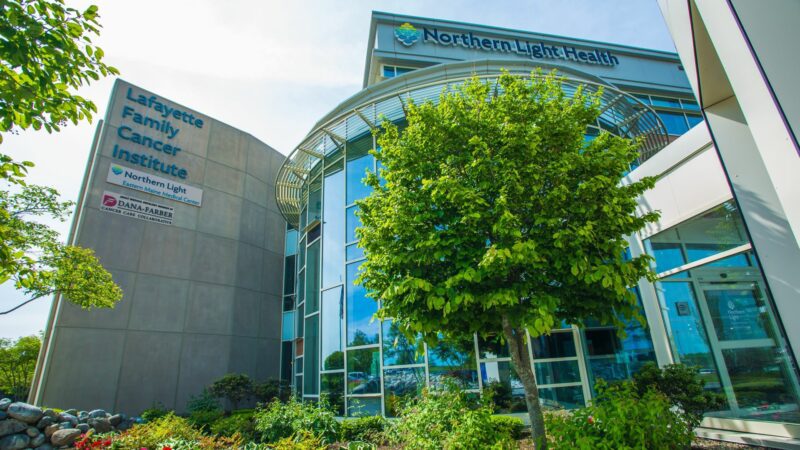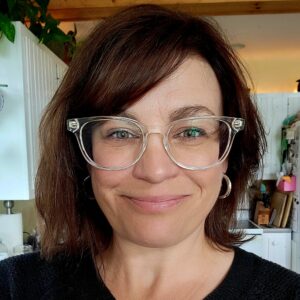Service deferrals at a Penobscot County cancer care center mean Washington County cancer patients must drive even further for care, or delay it.
Almost all Washington County cancer patients receive treatments at the Lafayette Family Cancer Institute in Brewer, says East Machias Family Nurse Practitioner Christine Moulton, but three months ago, Lafayette stopped accepting most new patients.
“Now we have no idea where they will receive treatment, but wherever it turns out to be, patients will have to travel 6 to 12 hours round trip,” said Moulton. “This not only represents a crisis for Washington County residents but for all Maine residents north of Waterville.”
Moulton first learned of the deferrals in late August after several of her patients received preliminary cancer diagnoses.
“These patients weren’t ready for the referral to Brewer, because they were still getting tests for the final diagnosis, but I knew they would end up there,” said Moulton.
Lafayette, a service of Northern Light Health, cites nationwide oncology staffing shortages and an increase in new cancer cases as the cause for the deferral decision. The increase in new cancer patients is explained in part because many people delayed cancer screenings during the pandemic, says Kris Currier, Northern Light Communications Specialist.
“To ensure our current patients receive the level of care they expect and deserve, Northern Light Cancer Care made the difficult decision to temporarily defer some new medical oncology patient referrals,” said Currier. “This temporary adjustment ensures that we are able to meet the needs of our current patients safely.”

Under some conditions, Lafayette is still accepting new patients, including referrals for returning patients, staff members who receive a diagnosis, patients diagnosed by Northern Light oncologists while in the hospital, individuals who require concurrent chemotherapy and radiation treatments, and patients at Northern Light surgical practices.
All others are referred to one of four cancer care centers in central and midcoast Maine, which means driving long distances that pile hardship on top of sickness, says Moulton.
“You can imagine, it’s bad enough to travel two hours to Brewer, but it’s manageable,” said Moulton. “But now you have to go to Rockland or Waterville or Augusta, or Brunswick.”
Former cancer patient Holly Whitney of Marshfield received treatments at Lafayette, roughly 85 miles away, and said even traveling to a clinic as close, relatively speaking, as Brewer, was difficult during chemotherapy.
“You’re nauseated and then you have to travel on bumpy roads,” said Whitney. “This is too much for most patients.”
A rural struggle
Even before the deferrals, Washington County cancer patients worked hard to receive care, says Angela Fochesato, executive director of the Beth C. Wright Cancer Resource Center, which services both Washington and Hancock counties.
“We don’t have many resources here so chronic disease patients, in general, aren’t getting services. People in Washington County don’t have the comfort that people in other Maine counties have,” said Fochesato, who previously worked as a cancer navigator with Healthy Acadia. “Northern Light is doing what it can with what they have. There’s a silver lining to COVID — now we know that we have a lot of fractures in our medical system.”
Cancer is the second leading cause of death nationwide (behind heart disease) but the number one cause of death in Maine, which ranks eighth nationwide, and first in New England for the highest rate of cancers. Of Maine’s 16 counties, Washington County has the third-highest incidences of all cancers, at 520.4 cases per 100,000 people behind Piscataquis (539.9) and Penobscot (524.7) counties, for the years 2015-2019, the most recent data available.
Even so, according to a 2017 transportation needs assessment conducted by the Maine Cancer Foundation (MCF), most Washington County residents are more than 50 miles from a radiation treatment center.
“A lack of oncologists in rural parts of the state, particularly in Washington County and southern Aroostook County, results in excessive travel distances,” reads the MCF assessment. “These areas would benefit the most from access to nearby oncologists.”
Solutions
There are no oncologists working in Washington County. In order to improve oncologist access efficiently and quickly, Moulton says hospitals should expand their use of telemedicine. Not all aspects of cancer care can be managed remotely, but the oncologist visit could be, she says.
“By the time that patient gets to the oncologist, they have had blood tests, CT scans, MRIs, they’ve had a biopsy, tissue sample, pathology report, and they have a staging and a name,” said Moulton. “The physical exam that the oncologist does at that first encounter doesn’t add a lot of additional information to the treatment plan — you can do this by telemedicine. We don’t need a local oncologist, we just need a good television.”
What telemedicine can’t create is access to chemotherapy infusion appointments, notes Moulton, a cancer care service also not available in Washington County.
But one Machias bright spot does simplify life for cancer patients — Moulton, Fochesato, and Whitney all praise the Down East Community Hospital infusion clinic, where patients can receive chemotherapy support drugs and other services, much closer to home.
“I had a standing order to receive fluids there, and that saved my life. I went from feeling terrible to feeling like I could function,” said Whitney. “I can’t say enough about the nurses in the infusion clinic. They took good care of me.”
Could the Machias hospital’s infusion clinic be expanded to include chemotherapy services, too? It’s not out of the question, says DECH Director of Marketing and Communications Julie Hixson, but it’s not around the corner, either.
“Over the years, we have searched for ways to bring chemotherapy to the hospital and continue to do so. So far, it has not been viable, but that doesn’t mean we will give up,” Hixson said. “It doesn’t look like we will be able to bring chemotherapy to Washington County in the immediate future, but we will continue to increase therapeutics at our infusion clinic so we can decrease the number of long trips.”
Getting there
In the absence of local services, Washington County patients must travel to other counties. Getting there can be hard, if not impossible, for those who don’t have a vehicle, don’t have a driver’s license, or are too sick to travel for hours unaccompanied.
“Transportation is a huge, huge issue,” said Fochesato.
Some government services pay for transportation to and from appointments, like ModivCare, available for MaineCare clients, but program limitations mean patients can’t make other important stops, such as at the pharmacy, on their way home. That’s where agencies like Beth C. Wright, Downeast Community Partners, and Ellsworth-based Friends in Action try to fill the gap, often with financial support from the nonprofit Maine Cancer Foundation.
“Our Downeast partnerships have been very impactful,” said MCF Executive Director Ray Ruby, noting MCF shifted its mission from research to programs in 2015. “In the last seven years, we have invested $2.1 million in Hancock and Washington Counties for transportation, as well as other important areas of need.”
Fochesato would like to see more federal funds devoted to patient service programs like transportation, palliative care, and home health services.
“We need to go to Washington and tell them to change their funding model, to start funding cancer and not just public health,” Fochesato says. “Because cancer is an epidemic. And it has been for years; everybody just lives with it now.”
Federal dollars earmarked for cancer research are critically important, she says, but until there’s a cure, there have to be patient services, too.
“Because once cancer patients hear that diagnosis, they don’t hear anything else,” said Fochesato. “We have to meet the patients where they are and get them through the journey so they can go from survivors to thrivers.”
This story first appeared in the Machias Valley News Observer and was republished with permission.




